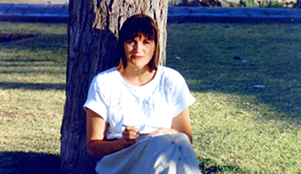by
Stepy —
August 23, 2014
- Healthy living is a life style and it includes being informed on the latest health news so you can take steps to living a long, healthy life.
- Other than skin cancer, breast cancer is the most common type of cancer in American women.
- According to the American Cancer Society, about 1 in every 8 women in the United States will develop invasive breast cancer during their lifetime.
- Expressing emotions and fears of a cancer diagnosis may improve health outcomes of breast cancer survivors, according to research from the University of Houston.
- “The key to developing an expressive writing intervention is the writing instruction. Otherwise, writing is just like a journal recording facts and events. Writing a journal can be therapeutic, but oftentimes we don’t get the empirical evidence to determine whether it’s effective or not,” explained Qian Lu, assistant professor and director of the Culture and Health Research Center at UH.
- “In my research study, I found long-term physical and psychological health benefits when research participants wrote about their deepest fears and the benefits of a breast cancer diagnosis,” Lu added.
- Lu and her team released a study called “A Pilot Study of Expressive Writing Intervention Among Chinese-Speaking Breast Cancer Survivors,” which was published in the journal Health Psychology. The goal of their research is to reduce the psychological load that a breast cancer diagnosis can cause.
- “Cancer patients, like war veterans in Iraq, can experience post-traumatic stress symptoms. Many times when cancer patients get diagnosed, they face lots of emotional trauma. There’s a sense of loss, depression, anxiety about going into treatment and how they are going to face the future,” said Lu. “They have a lot of emotional events going on in their life,” she added.
- The study was focused mainly on Asian Americans, because Lu found that very little attention was previously paid to the psychological needs of minorities with breast cancer. She notes that there are many unique challenges with a minority group including shame associated with cancer, cultural beliefs of dealing with the stress on your own (as not to disrupt others), suppressing of emotions, and a lack of mental health professionals who shared the same language.
- “We thought of a very interesting way to help this problem. It’s actually fairly basic. It’s to express emotions using writing,” Lu said. “What’s so interesting is that it has been proven as a scientific paradigm,” she added.
- Lu also noted that previous research has shown the link between expressive writing and increased immune function. One 2005 study published in the journal Advances in Psychiatric Treatment showed that expressive writing led to significant improvements in lung function, HIV patients, decreased joint stiffness due to arthritis, and more.
- “I based my study for Chinese-speaking breast cancer survivors on Pennebaker’s research paradigm, and we have conducted a series of studies to modify the paradigm for Asian-Americans” said Lu.
- Instead of going to a hospital, Lu worked with people in the community to find participants for the study. The participants were asked to complete a standardized health assessment and were also asked to write 20 minutes a week for three weeks. Instructions for the writing and questionnaires analyzing health outcomes were mailed to the participants. Phone interviews were also conducted after 6 months.
- “The findings from the study suggest participants perceived the writing task to be easy, revealed their emotions, and disclosed their experiences in writing that they had not previously told others. Participants reported that they wrote down whatever they thought and felt and perceived the intervention to be appropriate and valuable,” said Lu.
- Lu adds that the health benefits included less fatigue, less intrusive thoughts, and a reduction in posttraumatic stress. She also notes that this study contributes to the mounting evidence of the potential benefits for Chinese-speaking breast cancer survivors.
-
- Tip: Take a healthy living step and write down your fears and emotions.
- Try 20 minutes a week just like the study.
-
- Note: None of the information in our website is intended to diagnose, treat, cure or prevent any illness or disease. The content on our website is for educational purposes only.
-
- DON’T FORGET to sign up for our weekly newsletter to get our latest articles, updates, free recipes and giveaways.
-
- For 18 tips to prevent breast cancer.
- Birth control pills may increase breast cancer risk.
- How vitamin A may help reverse breast cancer.
- Eating red meat may increase risk of breast cancer.
- For the top 10 cancer fighting foods.
- For a cancer-fighting drink.
- For fighting breast cancer with curcumin and omega-3s.
-
- REFERENCES:
- 1. “What Are the Key Statistics about Breast Cancer?” American Cancer Society. American Cancer Society, n.d. Web. 19 Aug. 2014.
- 2. “Expressive Writing May Help Breast Cancer Survivors.” University of Houston. University of Houston, 01 Aug. 2014. Web. 19 Aug. 2014.
- 3. “A Pilot Study of Expressive Writing Intervention among Chinese-speaking Breast Cancer Survivors.” National Center for Biotechnology Information. Health Psychology, Sept. 2012. Web. 19 Aug. 2014.
- 4. “Expressive Writing May Help Breast Cancer Survivors.” ScienceDaily. ScienceDaily, 01 Aug. 2014. Web. 19 Aug. 2014.
- 5. “Emotional and Physical Health Benefits of Expressive Writing.” Advances in Psychiatric Treatment. Advances in Psychiatric Treatment, 2005. Web. 17 Aug. 2014.


















